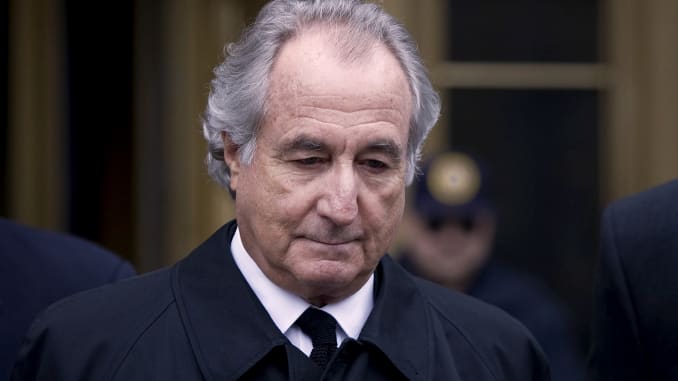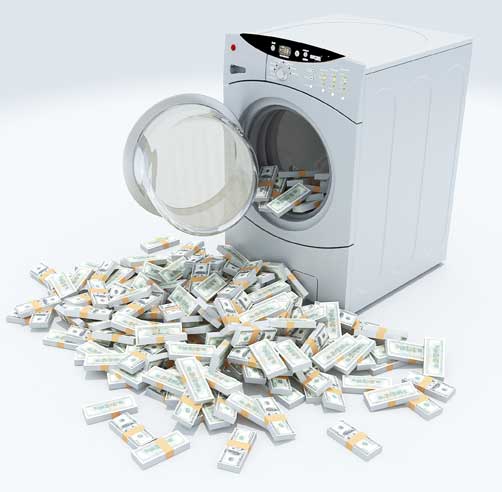Public Company Accounting Reform and Investor Protection Act of 2002 commonly known as Sarbanes-Oxley Act or SOX Act was enacted by US Congress to handle concerned issues surrounding business management and financial reporting as a way to restore and maintain investor confidence in the US capital market grappling with corporate scandals and accounting irregularities. With the integrity of the market further compromised by the failures of Enron’s bankruptcy and WorldCom, the act considered as the most significant corporate regulatory reform since the Securities and Exchange Act of 1934, sought to curb the ongoing-spectacular corporate failures and scandals occurring in North America.… Read the rest
Financial Scams
Case Study on Financial Ethics: The Bernie Madoff Case
On December 11, 2008, as the arrest of Benard Madoff, the former non-executive chairman of NASDAQ and chairman of Bernard L. Madoff Investment Securities LLC, many investors, big firms, banks, charities, universities and even governments were in panic, realizing that they were involved in a giant financial fraud, ‘all just one big lie’. According to an official document on March 12, 2009 from the Department of Justice of United States, Madoff pleaded guilty to eleven felony counts related to a massive Ponzi scheme and faced a statutory maximum sentence of 150 years in prison.
Actually, what Mr. Madoff did was simple; He continually paid high returns to existing clients with the funds injected by new investors without engaging in any form of legitimate investment activity and this is what people call ‘the Ponzi scheme’, named after Charles Ponzi who did such kind of financial fraud in 1920’s.… Read the rest
Money Laundering
Money laundering is a process used by offenders who attempt to conceal the true origin and ownership of the proceeds; these proceeds are results of criminal activities. It allows them to maintain control over the proceeds and provide a legitimate cover for their source of income.
The laundering of the proceeds that result from criminal activity is done through the financial system. The people who are involved in such an action exploit the facilities of the financial institutions of the world. Such an action is done easily under these conditions of free movement of capital. Banks involved in such actions risk to lose their market reputation.… Read the rest
Case Study: Reasons behind the Bankruptcy of Lehman Brothers
The bankruptcy of Lehman Brothers was a result of the investment bank’s exposure to the 2007-2010 financial crisis. In fact, the demise of the investment bank would come to symbolize the crisis. Therefore, in order to understand the bankruptcy of Lehman Brothers, a consummate understanding of the 2007-2010 financial crisis is requisite. As such, an examination of crisis will serve as introductory.
Several factors contributed to the fall of Lehman Brothers. Perhaps most important, however, was the period of deregulation that preceded the crisis.
Arguably, the period of deregulation started during the Reagan Era. Reaganomics, the lassiez faire economic policies advocated by the former president, may have served as the starting point for the deregulatory climate that ensued for the following two decades.… Read the rest
Case Study: The Collapse of Enron
Enron Corporation is an energy trading, natural gas, and electric utilities company located in Houston, Texas that had around 21,000 employees by mid-2001, before it went bankrupt. Its revenue in the year 2000 was more than $100 billion and named as “America’s most innovative companies for six consecutive years by Fortune. Enron was a company that was able to profit by providing the delivery of gas to utility companies and businesses at the fair value market price. Enron was listed as the seventh largest company in the United States and had the domination in the trading of communications, power, and weather securities.… Read the rest
Case Study on Corporate Governance: UTI Scam
Of all the recent encounters of the Indian public with the much-celebrated forces of the market, the Unit Trust’s US-64 debacle is the worst. Its gravity far exceeds the stock market downswing of the mid-1990s, which wiped out Rs. 20,000 crores in savings. The debacle is part of the economic slowdown which has eliminated one million jobs and also burst the information technology (IT) bubble. This has tragically led to suicides by investors. And then suspension of trading in US-64made the hapless investors more dejected at the sinking of this “super-safe” public sector instrument that had delivered a regular return since 1964.… Read the rest

